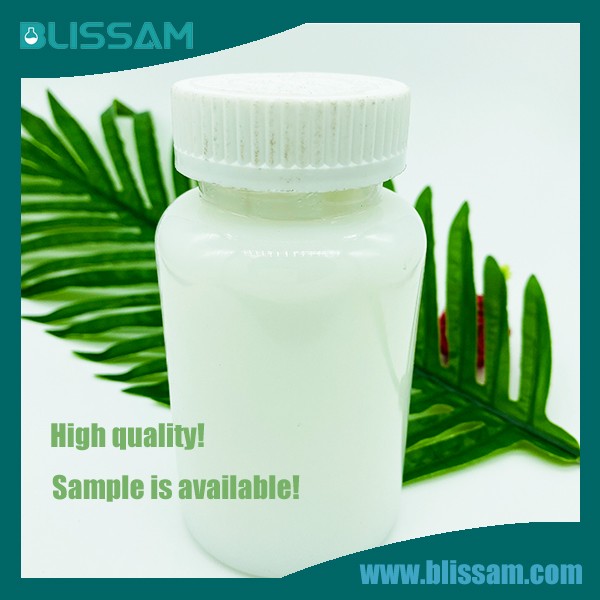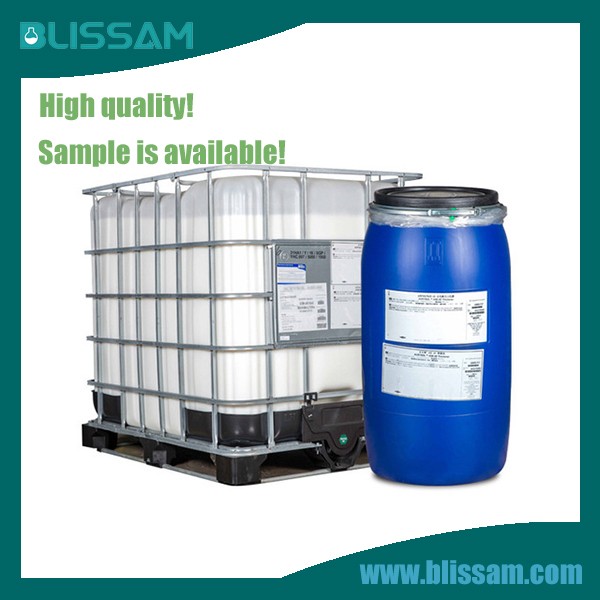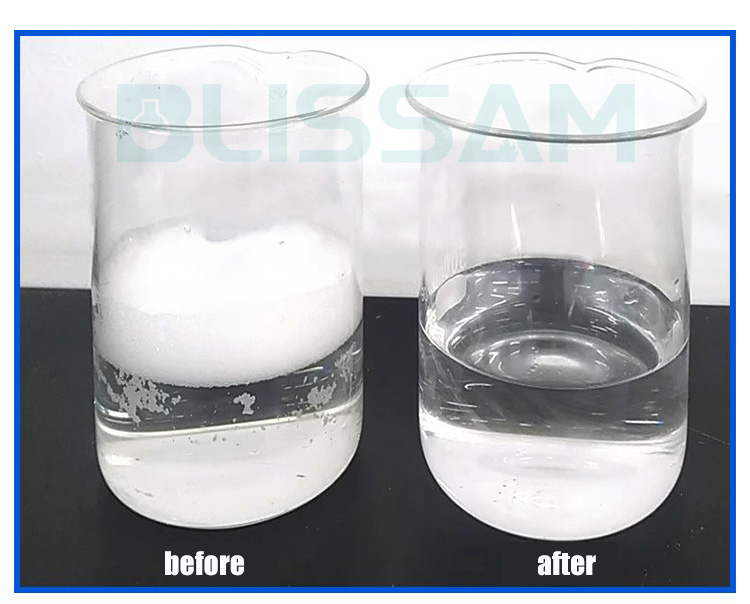In the manufacturing world, operational efficiency and product quality are top priorities. To achieve this, companies often rely on various chemical additives that enhance the performance of processes and products. Among the most commonly used additives are silicone emulsions and defoamers, each serving unique functions across different industrial applications.
At BLISSAM, we specialize in providing high-quality silicone-based solutions designed to improve manufacturing performance. This article explores the key differences between silicone emulsions and defoamers, their applications, and how they contribute to enhancing efficiency in various industries.
Silicone emulsion is a stable mixture of silicone oil dispersed in water, typically with the help of surfactants. This water-based formulation makes silicone emulsions easy to use in various applications, providing benefits such as lubrication, water repellency, and gloss enhancement. The ability of silicone emulsions to deliver the unique properties of silicone oil in a water-compatible form has made them popular across a range of industries, including textiles, cosmetics, automotive, and agriculture.
1. Textile Industry
In the textile industry, silicone emulsions are widely used as softeners and lubricants. They improve the hand feel of fabrics, making them softer and smoother to the touch. Additionally, silicone emulsions help prevent fiber damage during processing and provide water repellency to outdoor fabrics.
2. Cosmetics and Personal Care
Silicone emulsions are frequently used in the formulation of skin care products, hair conditioners, and lotions. Their non-greasy texture and smooth spreadability make them ideal for enhancing the feel of personal care products, while also providing moisturizing and protective properties.
3. Automotive Care
In the automotive industry, silicone emulsions are used in products such as tire dressings, dashboard cleaners, and waxes. These emulsions provide a glossy finish, protect surfaces from UV damage, and offer water-repelling properties, which help maintain the appearance and longevity of automotive surfaces.
4. Agriculture
In agricultural applications, silicone emulsions are used as adjuvants in pesticides and fertilizers. They improve the spread and adhesion of these products on plant surfaces, ensuring more efficient application and better crop protection.

Water Compatibility: Silicone emulsions are water-based, making them easier to apply in various processes compared to pure silicone oil.
Lubrication and Protection: They provide excellent lubricating properties and protect surfaces from wear and environmental factors such as UV rays and moisture.
Easy Application: Since silicone emulsions are liquid and can be diluted, they are easy to apply and can be incorporated into different products and processes.
Versatility: Silicone emulsions can be tailored for a wide range of applications, making them suitable for use across industries.
A defoamer, also known as an anti-foaming agent, is a chemical additive used to reduce or eliminate foam in industrial processes. Foam can be problematic in manufacturing as it can lead to equipment malfunctions, reduced efficiency, and product defects. Defoamers are designed to break down foam and prevent its formation, ensuring smooth, efficient operation.
Defoamers come in several types, including silicone-based, water-based, and oil-based formulations. Silicone-based defoamers are particularly effective due to their excellent surface-active properties, making them capable of disrupting foam formation even at low concentrations.
1. Water Treatment
In water treatment plants, foam can form as a result of aeration, chemical reactions, or the presence of surfactants in the water. Defoamers are added to control foam during the treatment process, ensuring the proper functioning of filtration and aeration systems.
2. Paints and Coatings
In the production of paints, coatings, and inks, foam can create defects such as bubbles and craters in the finished product. Defoamers are added to the formulation to prevent foam from forming during mixing and application, resulting in smooth, defect-free surfaces.
3. Paper and Pulp Industry
In paper manufacturing, foam can interfere with the papermaking process, leading to defects and lower product quality. Defoamers are used to minimize foam during the production process, improving efficiency and the overall quality of the paper.
4. Food and Beverage Processing
Foam formation is common in food and beverage processing, particularly in brewing, dairy production, and juice extraction. Defoamers are used to control foam in these processes, ensuring smooth production and consistent product quality.

Improved Process Efficiency: Defoamers help maintain optimal operational conditions by preventing foam-related disruptions in machinery and equipment.
Enhanced Product Quality: In industries like paint, paper, and food processing, defoamers ensure that foam does not compromise the quality of the final product.
Low Concentration Use: Silicone-based defoamers are effective at low concentrations, reducing the amount of additive needed while still delivering strong anti-foaming performance.
Versatility: Defoamers can be used across a wide range of industries and processes where foam generation is a challenge.
Although both silicone emulsions and defoamers play important roles in manufacturing, they serve distinct purposes. Here's how they differ:
| Characteristic | Silicone Emulsion | Defoamer |
| Primary Function | Lubrication, surface protection, water repellency | Eliminate and prevent foam formation |
| Form | Water-based liquid containing dispersed silicone oil | Available in silicone-based, oil-based, and water-based forms |
| Application Process | Applied to surfaces, fabrics, or as a formulation ingredient | Added directly to industrial processes to control foam |
| Industries | Textiles, cosmetics, automotive, agriculture | Water treatment, food processing, paints, paper manufacturing |
| End-Use Benefits | Improved texture, protection, gloss | Foam control, better process efficiency, enhanced product quality |
Both silicone emulsions and defoamers enhance manufacturing processes in their unique ways, improving efficiency, protecting products, and ensuring smooth operations. While silicone emulsions are primarily used for improving the appearance, lubrication, and protection of surfaces, defoamers play a critical role in maintaining the efficiency of industrial processes by controlling foam.
When you need to soften and protect surfaces such as textiles, automotive parts, or personal care products.
When you require water-repellent properties, especially in outdoor applications.
When you aim to enhance the aesthetics of products, providing a glossy finish or smooth texture.
When foam is negatively impacting your production efficiency and equipment performance.
When foam defects are lowering the quality of products, such as in paints or food processing.
When you need to prevent foam-related contamination in water treatment or chemical manufacturing processes.

Both silicone emulsions and defoamers are invaluable tools in manufacturing, offering distinct benefits that help improve the performance of various industrial processes. While silicone emulsions excel in providing lubrication, protection, and aesthetic enhancement, defoamers are essential for controlling foam and maintaining efficiency in systems where foaming is problematic.
At BLISSAM, we offer a wide range of silicone emulsions and defoamers tailored to meet the specific needs of our clients across different industries. Whether you’re looking to enhance surface quality or improve process efficiency, our silicone-based solutions are designed to deliver top-tier performance in your manufacturing operations.
Contact:
Phone: +86-15957191858
E-mail: info@blissam.com
Whatsapp:+8615957191858
Add: A647, No. 9, Xiyuan Road, Xihu District, Hangzhou, Zhejiang, China
We chat
